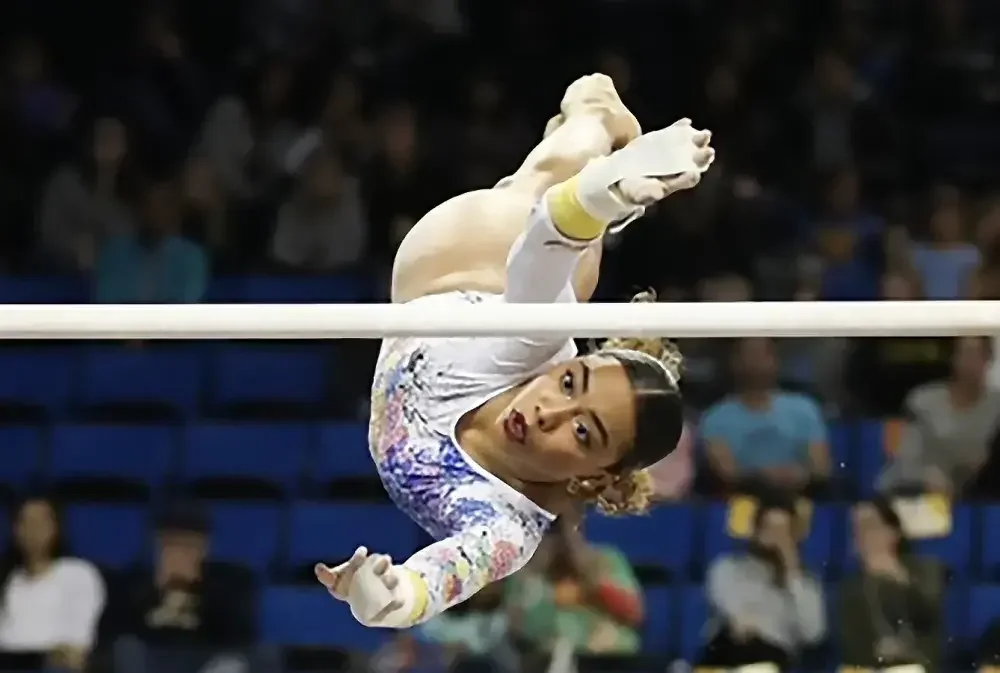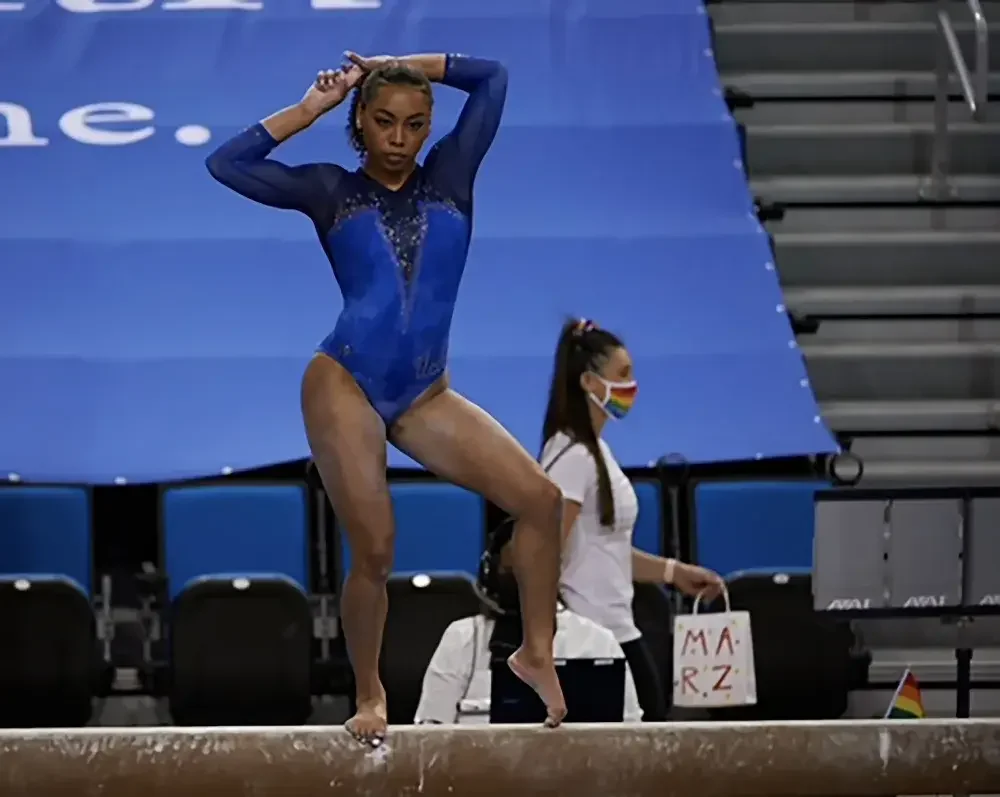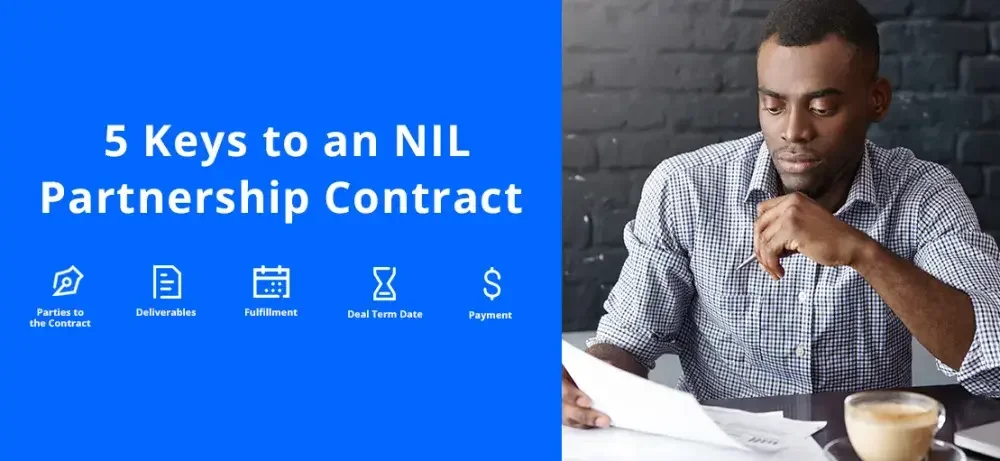When she's not perfecting her front aerial with a full twist off the balance beam, winning accolades on the uneven bars or adding to her floor routine, UCLA gymnastics standout Margzetta Frazier might be sipping tea. After all, she's getting paid to endorse Celestial Seasonings' Energy Tea as part of a name, image and likeness (NIL) endorsement deal.

Frazier, like many college athletes, is now exploring the type of business opportunity that fits nicely between practices and meets. She's able to do so because on July 1, 2021, various parties of the NCAA agreed to allow college student-athletes to earn compensation for use of their name, image and likeness.
How she made her NIL endorsement official
Frazier used a contract, similar to the Independent Contractor Agreement that LegalZoom offers, to solidify her NIL agreement with Celestial Seasonings. While student-athletes are legally permitted to hire representatives and advisers to support their NIL efforts, they are ultimately responsible for their own affairs, and it's important to have clarity on all aspects of an agreement.
Although every contract is unique, these five features will be generally universal to your NIL agreement.

1. Parties to the contract
This is the “who" of the endorsement deal. For Frazier, the partnership with Celestial Seasonings was simple. But some deals are more complex. Additional parties may include an agent, public relations firm, additional brands, or other athletes.
You must be able to point to each person and/or company listed in the agreement as a party to the contract. Those parties are held legally responsible in all aspects of the partnership. If there are issues with the contract or the relationship governed by the contract, those parties can seek legal remedies generally only from the other parties to the contract.
2. Deliverables/deal activity
This is what you'll do for compensation and to fulfill the requirements of the NIL deal.
Frazier's endorsement required two distinct activities: photo/video/audio creation and publishing an Instagram reel. Celestial Seasonings provided clear direction of elements that must be included, such as showing the tea packaging, saying the full brand name, using dedicated hashtags, and including a sponsored #ad hashtag disclosure.
Like in Frazier's deal, endorsements may have social media requirements. A contract should outline:
- Which platforms to use
- How many posts are required
- Whether the product needs to be shown
- Specific language to be written or spoken
Contracts may also outline in-person appearances, video chats, article writing, photo shoots, meet-and-greet events, and other marketing activities.
Make sure the expectations of each party are clear, including the possibility of multiple types of activities and the timing of such activities. Brand partners (“buyers") have a responsibility to share detailed terms with student-athlete influencers to ensure the clarity of the opportunity.
In many cases, buyers can also review your deliverable (like social media posts or blog posts) and deal activity before considering the deal complete. If the brand determines the activity did not meet the terms of the agreement, they may have the right to withhold payment. Student-athletes should know if this clause exists in the contract.

3. Fulfillment date
This is the "when" part of the deal.
Frazier's deal agreement included Celestial Seasonings' statement of work and an influencer agreement.
Before accepting an endorsement offer, you should consider your schedule and responsibilities to ensure you can fulfill the expectations of the contract. Plan ahead and set deadlines before the fulfillment date to ensure there are no issues with getting the job done.
4. Deal term
This is how long the content is consumable by the public.
Many NIL deals are related to posting social media content, and it is important that contracts spell out how long a post must remain live. The Celestial Seasonings brand statement of work and influencer agreement explained the deal term for Frazier's Instagram posts.
You must leave posts active for the length of the deal term, at a minimum, but it's recommended they do not delete partner posts. Not only does featuring sponsored content show that you're a strong partner, but it can also be viewed as a sampling of your work—and attract future business opportunities.
This principle also extends beyond social media. If you're licensing your NIL to a brand or company, how long does that agreement last? Outline how long the brand can use your NIL.
5. Payment
This is how much you will earn for the project. After reviewing all of the above elements, ensure the compensation for the work is fair and worth the time and effort invested.
Frazier's deliverables and deal activities were paid. Funds were available through the Opendorse platform when proof of completion was submitted through the app and approved by Celestial Seasonings.
As you explore the details of a contract, be sure it spells out how much, by what method, and when you will be compensated for your work. If you have questions, speak up!
Has a marketing or public relations representative direct messaged you on social? Or, did an influencer partnership proposal land in your email inbox? Learn more about legal contracts before accepting any student-athlete NIL offers. Review LegalZoom's Contract law resources for more details.
